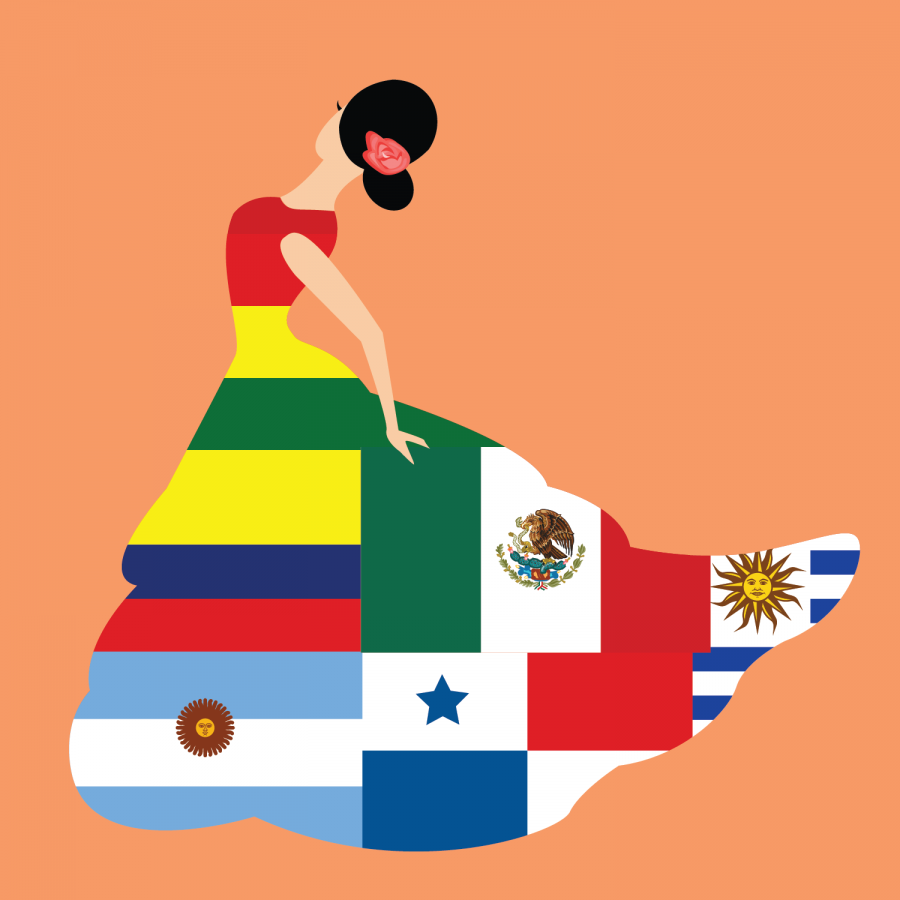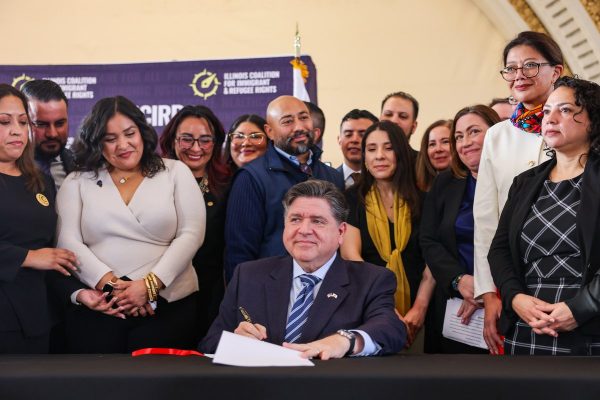Hispanic Heritage Month’s importance extends beyond October
Oct 24, 2018
The past month has been an important time for Hispanic culture on campus. Celebrations of history, tradition, art and more have taken place around the University since mid-September.
Hispanic Heritage Month begins in the middle of September because many Latino countries gained independence around that time. The celebrations are now coming to an end, after a month full of events for students such as Latin Dance Night, Indigenous People’s Day Celebration and Body Positivity and Self Image in Latinx Communities, hosted by La Casa Cultural Latina.
Jorge Mena, La Casa’s interim director, said that La Casa provides a safe space for Latino students while also providing a way for students to learn about their own culture and others. The learning opportunity extends beyond the walls of La Casa and into the community through events, especially those during Hispanic Heritage Month, which were open to all students on campus.
“In celebrating Hispanic heritage, communities are given the opportunity to celebrate their history and lineages,” Leyda Garcia-Greenawalt, junior in LAS, wrote in an email. “Some students on campus are first generation from Mexico or Guatemala or some other Latin American country; others have been in the US for generations celebrating their Hispanic heritage just the same. This is their culture, their tradition.”
Hispanic Heritage Month was an important celebration for students to feel connected to their culture and each other.
Get The Daily Illini in your inbox!
Mena said that La Casa events benefit students because there is often the perception that all Latino students share one identity when the Latino culture is not an entirely homogeneous group.
“When we’re planning the events, we try to highlight the diversity within identities that Latinos share and really take into consideration that Latino identity is more complicated than it seems and that yes, you’re Latino, but it’s likely that you also identify with other things,” Mena said.
In addition to the different identities that Latino students may connect with, this year La Casa highlighted an important issue that the community has recently been faced with: the immigration discussion.
On Oct. 24, Sonia Nazario, the author of a story about a young boy’s adventure to America to find his mother, will be the last Hispanic Heritage Month event. Although La Casa normally brings in various performers, Mena said choosing to bring Nazario to give a talk this year was an important decision.
“We decided to go with a speaker because a lot of conversations happening are about immigration lately, so we decided to bring her to hone in on those conversations that are already happening in our community and to highlight the topic of young children coming to this country,” Mena said.
Participants in Hispanic Heritage Month events invite students from other cultures to join them in celebrating Latino culture.
Events such as Latin Dance Night, which attracts over 300 participants for a few hours of dancing each semester, and Hispanic Heritage Theme Night, during which the chefs in dining halls created all Latino-based dishes, give non-Latino students an easy way to be involved in the month’s celebrations.
Hispanic Heritage Month’s importance extends beyond the month that events are held in. It is an opportunity for all students to become more understanding and positive towards each other throughout their University experience and into the future as well.
“The more basic understanding our UIUC community has of Latin American cultures, the easier it is to debunk the stereotypes that the media wants us to feed into,” Garcia-Greenawalt said. “Having a month celebration allows students to ask questions, go to events and indulge in a culture that helped make the US what it is today.”
Carmen Hernandez, graduate student in LAS, works at La Casa as a graduate assistant and a DACA mentor. Hernandez said that La Casa and the events it hosts provide students with a way to connect to their roots while being away from home, which becomes an essential part of the students’ college experience.
La Casa originally began due to student activism when minority students demanded a space with resources that would aid them in their college careers. At the start of La Casa, there was no professional staff until students once again gathered and demanded that professionals be made available to them.
Since its start, La Casa’s importance extends far beyond Hispanic Heritage Month and serves as a way to connect students with each other, with staff and faculty and with non-Latino students who are curious to learn more.
“Everyone needs a space where they call home or feel welcomed, and I think for Latinx students, La Casa is one of them,” Hernandez said.






